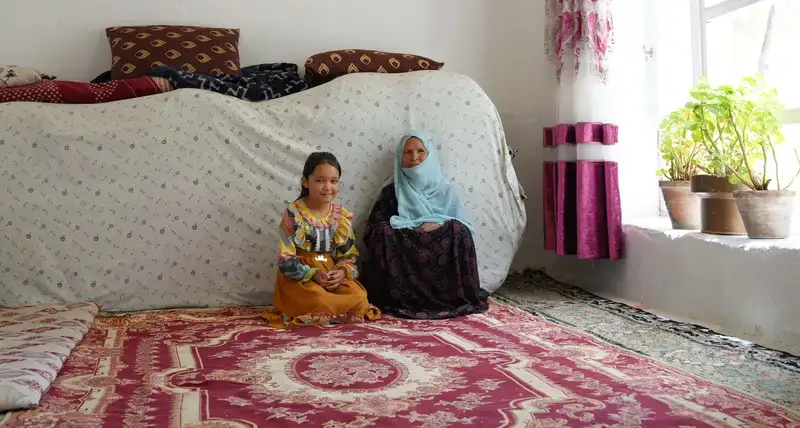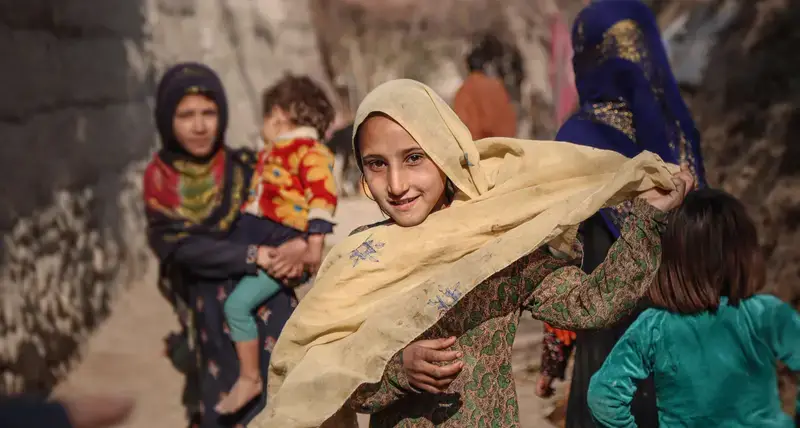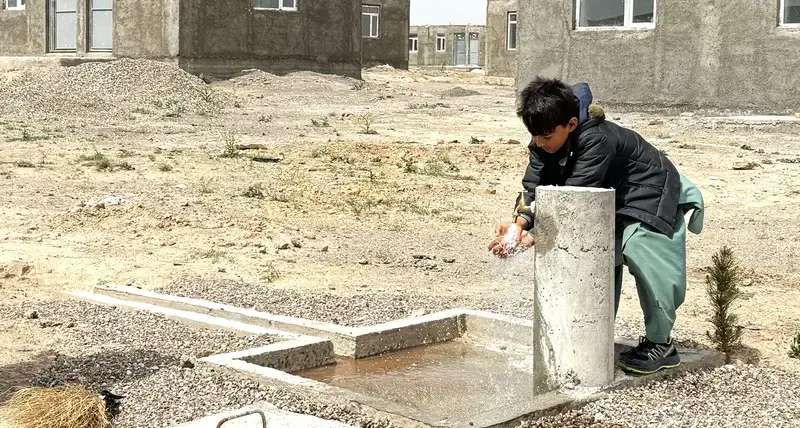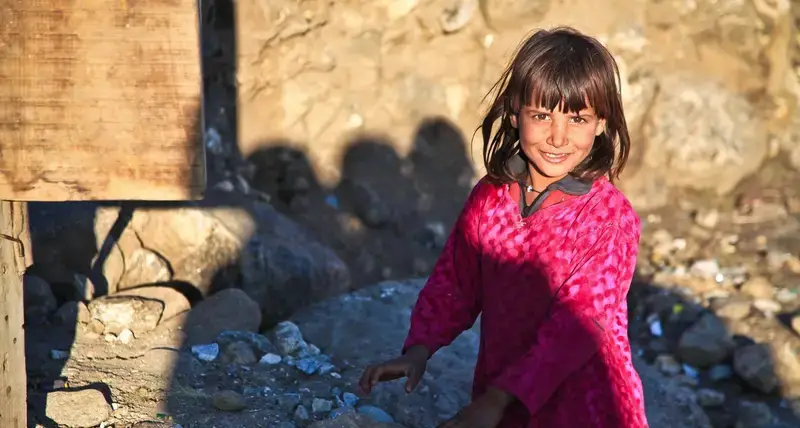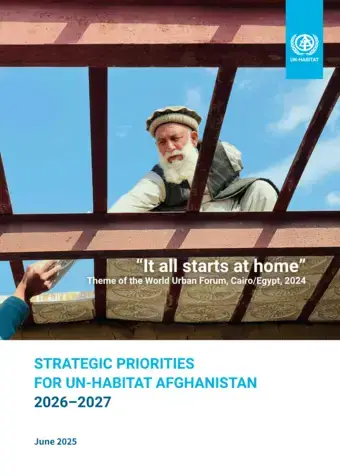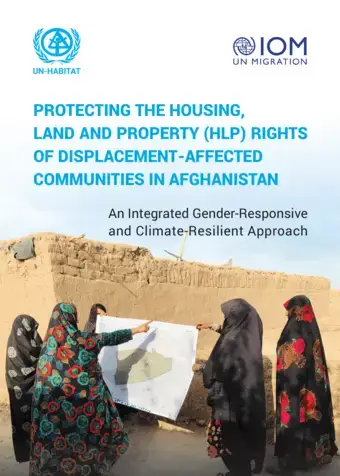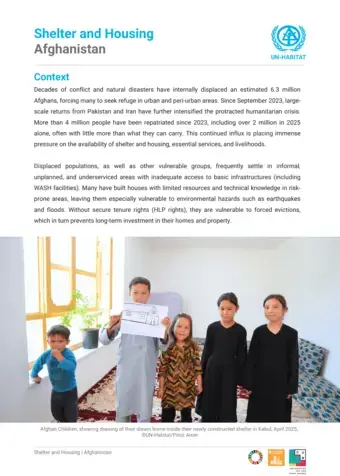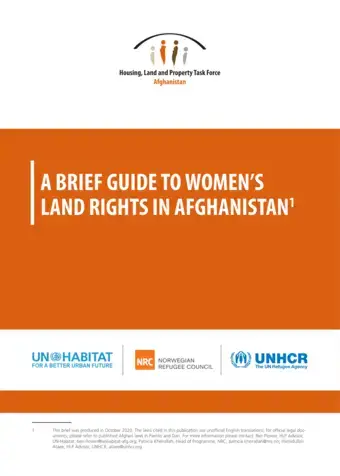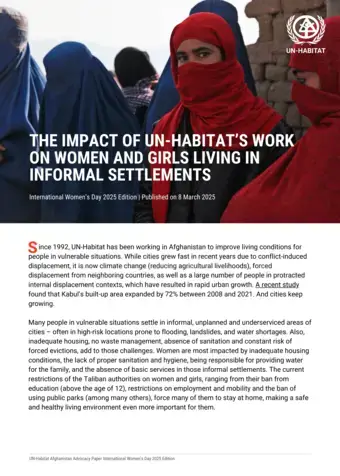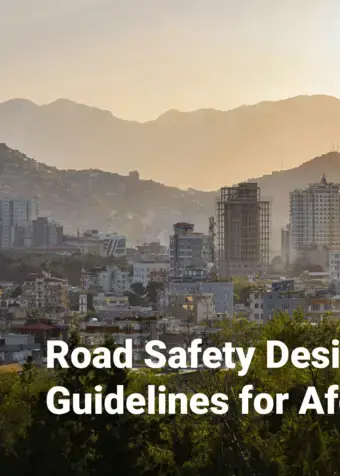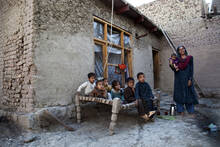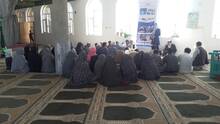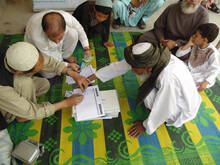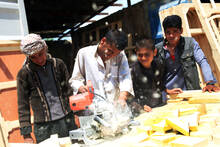UN-Habitat has worked in Afghanistan since 1992 for sustainable urban development. High impact projects have improved the living conditions for Afghan communities in vulnerable situations, and contributed to the physical and social reconstruction of the country. Historically, UN-Habitat has focused on supporting government in the development of urban policies and regulations; strategic urban planning; increasing municipal revenue; establishing community-based organizations; addressing the land and housing needs of IDPs and returnees; and contributing to the provision of basic urban services. In the current context, UN-Habitat focuses on directly supporting the Afghan people through humanitarian assistance and basic human needs projects.
UN-Habitat programmes and projects range from shelter projects to more sustainable housing solutions (including strong leadership on HLP rights); improved access to services, including water, education and social services; all projects are designed to reduce the impact of climate change through increasing the resilience of vulnerable communities.
Country: Overview
Country: Overview
Country: Overview
Impact
Country: Impact and Urban Numbers
UN-Habitat supports the Afghan people for human settlements of all sizes through the construction, rehabilitation and restoration of shelter/housing, services and infrastructure and climate change mitigation projects.
Even when implementing humanitarian projects, our approaches are strongly anchored in community-driven and area-based approaches.
Urban numbers
Country: Impact and Urban Numbers
Urban population growth: 3.3% (World Bank estimate 2023)
The percentage of people living in urban areas is estimated to be 27% (World Bank estimate 2023)
UN-Habitat is currently increasing our efforts to increase the evidence-base and improved urban data.
Challenges
Informality is not the exception but the rule: 80 % of urban Afghans live in informal areas. The vast majority of the urban population live in under-serviced, informal housing with little tenure security and very poor access to basic services such as water and sanitation.
Longstanding conflicts and political instability contribute to weak governance and considerable urban challenges, including poverty, inequality, social exclusion, youth unemployment, and gender inequality. Lack of urban planning capacity and limited investment in urban infrastructure and assets has compounded challenges. In this context, rural-urban migration and forced returns of Afghans from neighboring countries to cities are placing further strains on urban areas, which already house large populations of those internally displaced by past conflicts.
Worsening climate breakdown is an emerging challenge, with Afghanistan regarded as one of the most climate vulnerable countries on earth. Recurrent droughts have degraded rural livelihoods to increase rural-urban migration. Moreover, climate hazards, including flooding and associated disease, are increasingly impacting cities, with residents of informal settlements suffering particular vulnerabilities.
Our Vision
Our Mission
Highlighted Publications
Our urban development projects
Donors and partners
UN-Habitat is grateful to our technical and financial partners for their trust in our technical capacity and their continuous support for improving the lives of people in Afghanistan.

